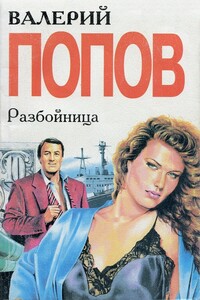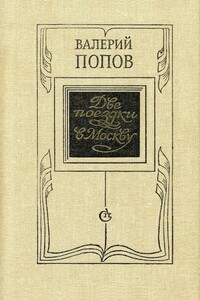36 Arguments for the Existence of God - [10]
“So it was more or less random, whether to live with your mother or father. It was more or less symmetrical. But then, once you decided, it was completely asymmetrical. He got all of you, and she got none.”
“It was still symmetrical, absolutely, but in the abstract. The symmetry was preserved, absolument, but in the abstract.”
She was annoyed with him. Her infinite eyes were darkening with impatience. Her scowl brought her brows together in one continuous line over her delicate but imperious nose. He was being slow, deliberately obtuse. He was very sweet, her Cass, and tried very hard to make her life easier. He believed that in doing all the household chores, the paying of the bills and the shopping and the cooking, and the dealing with the computer, and even doing her research in the Edna and Edgar Lipschitz Library at the Frankfurter University, where he taught, he could put himself, in his own small way, in sacred service to her muses. But occasionally, for reasons that eluded her, he was determined not to understand the simplest of things. It was a mystery to her. Also extremely annoying.
Sometimes, in order to show her that he really was following her, or to test his own comprehension, he would try to finish her sentences as she groped for the right English words, and if she smiled her red-toothed smile and said “Exactement!” his day was made. But there were times, too, when he chose the coward’s way and only pretended to know what she was going on about.
For example, her views on probability. Though she was named after the founder of probability theory, she thought the entire concept a perversion of reason. An event that happens happens. Its non-occurrence, therefore, cannot happen. Never, when something happens, can its not happening also happen. It is happening 100 percent, and it is 0 percent that it is not happening. And since a thing either happens or not, there is only 100 percent or 0 percent of the probability. C’est logique! Therefore, what is the probable but the confused? And what is the confused but the cowardly? And what is the cowardly but the immoral? And what is the immoral but the probable? It is full circle! Therefore-she always said this word with a special emphasis, equal accent on both syllables, and blowing a bit of air into the f, so that the aspirated phoneme seemed to ascend on the smoky fragrance of her voice-there is only the absolutely impossible, what they rightly call the thing with 0 probability, and the absolutely necessary, which they say has probability 1, Papa had informed her, but she had vehemently countered that, no, it must be measured as 100, or, better yet, as infinite, since certitude is infinite. Therefore-maybe she had inherited the love of the adverb of consequence from mathematical Papa, or maybe, as Cass enjoyed picturing, all the children of Bures-sur-Yvette, hanging upside down on the jungle gym, solemnly sprinkled their sentences with donc-there is only, in the calculus of probability, the numbers zero and infinity.
“And do you know, Cass-Papa, he did not argue with me.”
Cass could well believe that Papa, he did not argue with her. What Pascale believed, she knew, and what she knew, she knew with savage certitude. La Sauvagerie et la certitude.
“Basically, she’s full of shit” was the way that Mona had put it, which Cass thought hardly did the situation justice. Mona, with her high-school-level French, couldn’t even read Pascale’s poetry in the original. Cass had translated as best he could, but clearly it wasn’t good enough.
“Her poetry is a crock, too. That relentless keening. It hurts my ears just reading it. She’s the Yoko Fucking Ono of poetry. She’s anti-art.”
“How is she anti-art, Mona?” Cass felt compelled to ask, even as he acknowledged to himself that Mona’s Yoko Ono comparison had something to it. “Say what you will about her, Pascale is a brilliant poet. How can her poetry be anti-art?”
“I’ll tell you exactly how. Art is supposed to increase our mindfulness. Pascale wouldn’t know mindfulness if it bit her on her skinny French ass.”
This last phrase, which might easily be perceived as not only anti-Gallic but, even more egregiously, intolerant of a woman’s right to choose the shape of her own body, was a testament to just how angry Mona felt, on Cass’s behalf, or how hard she was trying to get Cass to feel some anger on his own behalf. (She never succeeded.) But her assertion about the mindfulness function of art was straight out of her textbook. Mona had done her doctoral work with Arlene Unger, who makes the concept of mindfulness central to her existentialist psychology. The concept was central to Mona as well. She worked it in whenever she reasonably- or even unreasonably-could. Mona, who was quick to ask the first question at lectures, always began her query with the phrase “As an Ungerian, I’m wondering.” You could tease Mona about almost everything-her bisexually frustrating love life, her Omaha, Nebraska, upbringing, even her weight-but mindfulness was off limits. Mindfulness was Mona’s religion.

ББК 84.Р7 П 57 Оформление художника С. Шикина Попов В. Г. Разбойница: / Роман. Оформление С. Шикина. — М.: Вагриус, СПб.: Лань, 1996. — 236 с. Валерий Попов — один из самых точных и смешных писателей современной России. газета «Новое русское слово», Нью-Йорк Книгами Валерия Попова угощают самых любимых друзей, как лакомым блюдом. «Как, вы еще не читали? Вас ждет огромное удовольствие!»журнал «Синтаксис», Париж Проницательность у него дьявольская. По остроте зрения Попов — чемпион.Лев Аннинский «Локти и крылья» ISBN 5-86617-024-8 © В.

ББК 84.Р7 П 58 Художник Эвелина Соловьева Попов В. Две поездки в Москву: Повести, рассказы. — Л.: Сов. писатель, 1985. — 480 с. Повести и рассказы ленинградского прозаика Валерия Попова затрагивают важные социально-нравственные проблемы. Героям В. Попова свойственна острая наблюдательность, жизнеутверждающий юмор, активное, творческое восприятие окружающего мира. © Издательство «Советский писатель», 1985 г.

Две неразлучные подруги Ханна и Эмори знают, что их дома разделяют всего тридцать шесть шагов. Семнадцать лет они все делали вместе: устраивали чаепития для плюшевых игрушек, смотрели на звезды, обсуждали музыку, книжки, мальчишек. Но они не знали, что незадолго до окончания школы их дружбе наступит конец и с этого момента все в жизни пойдет наперекосяк. А тут еще отец Ханны потратил все деньги, отложенные на учебу в университете, и теперь она пропустит целый год. И Эмори ждут нелегкие времена, ведь ей предстоит переехать в другой город и расстаться с парнем.

«Узники Птичьей башни» - роман о той Японии, куда простому туристу не попасть. Один день из жизни большой японской корпорации глазами иностранки. Кира живёт и работает в Японии. Каждое утро она едет в Синдзюку, деловой район Токио, где высятся скалы из стекла и бетона. Кира признаётся, через что ей довелось пройти в Птичьей башне, развенчивает миф за мифом и делится ошеломляющими открытиями. Примет ли героиня чужие правила игры или останется верной себе? Книга содержит нецензурную брань.

О книге: Грег пытается бороться со своими недостатками, но каждый раз отчаивается и понимает, что он не сможет изменить свою жизнь, что не сможет избавиться от всех проблем, которые внезапно опускаются на его плечи; но как только он встречает Адели, он понимает, что жить — это не так уж и сложно, но прошлое всегда остается с человеком…

В жизни каждого человека встречаются люди, которые навсегда оставляют отпечаток в его памяти своими поступками, и о них хочется написать. Одни становятся друзьями, другие просто знакомыми. А если ты еще половину жизни отдал Флоту, то тебе она будет близка и понятна. Эта книга о таких людях и о забавных случаях, произошедших с ними. Да и сам автор расскажет о своих приключениях. Вся книга основана на реальных событиях. Имена и фамилии действующих героев изменены.